Having to travel by boat to reach the teaching location makes the journey of "sowing knowledge" for ethnic minority children in Hoa Binh province difficult.
The hard way to school
Xom Nhap is considered an oasis of Dong Ruong commune (Da Bac district, Hoa Binh province). Seven years ago, the hamlet was still a deserted land with vast reeds. The people living here had to endure a landslide before finding a place to live as it is now.
Although it is only a small hamlet with 27 households, the roads in Nhap hamlet have all been paved, people's lives have improved significantly, and the number of poor and near-poor households has decreased every year.
Although happy to witness the changes in Nhap hamlet in recent years, Mr. Quach Cong Hung, the hamlet's Party Secretary, still has many concerns, especially when it comes to the education of children in the hamlet.
Because it is located in the heart of Hoa Binh Lake, Nhap hamlet is like an "oasis", all activities of the people are associated with boats. "Fishing requires boats, farming also requires boats, even children still need boats to go to school", Mr. Hung shared.
Xom Nhap has 1 kindergarten and 1 primary school. However, after finishing 4th grade, the children in the hamlet will have to move to the commune center to continue their studies. From Xom Nhap, it takes 40 minutes to travel by boat across the lake to get to the commune center.
Mr. Hung said: "On calm days, the waves are calm, but if it rains or is cold, studying is really difficult." That's why in Nhap hamlet, there are many cases of children finishing 4th grade and then dropping out of school. Among them is the eldest daughter of Ms. Bui Thi Vinh (41 years old, Muong ethnic group) and Mr. Bui Van Diep (50 years old).
Vinh and her husband have 3 children (2 girls, 1 boy). Although the family's economy is difficult, they still send all their children to school. The eldest daughter was a good student but had to drop out after 4th grade. Everyone was surprised, but when they found out the reason, they only felt sorry for the child.
"Each round trip costs 30,000 VND in gas. My child also gets seasick and traveling by boat is unsafe, especially during the rainy and stormy season, so my family had to let him stay home from school," Vinh shared.
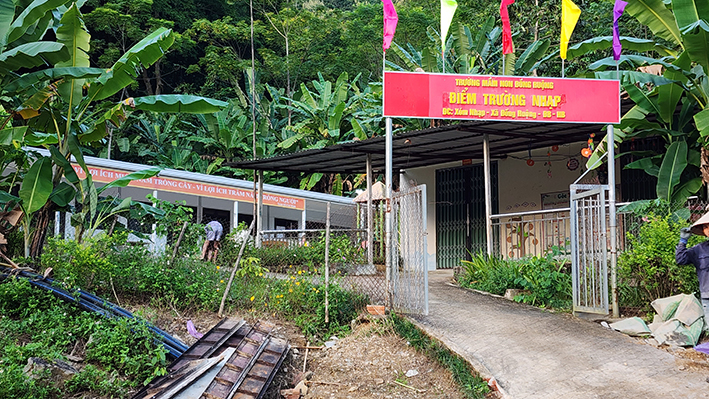
Nhap hamlet school currently has 15 students studying.
While the first child's education is still a concern, the family will soon have to make a decision regarding the second daughter's education. This year, the child is in 4th grade and the trip from home to the commune center to continue to 5th grade still requires a boat.
The hardships and difficulties on the journey of "finding letters" of the children in Nhap hamlet are probably best understood by Mr. Dinh Hai Nam (37 years old, Muong ethnic group). Since his daughter Dinh Tieu Yen started 5th grade, every day, Mr. Nam has had to take her to school.
"I don't feel safe letting my child go alone, so I have to take him to and from school," Nam confided. The distance is far and inconvenient for travel, so on days when his child has one session, Nam takes him to school and stays there until he finishes school to take him home.
When his daughter studies all day, Nam has to go home and then come back in the afternoon to pick her up. Because the school is far away, he and his daughter have to leave home at 5:30 every day.
"Although it is so hard, we still have to try so that the children can have a better future. The wish of the people of Nhap hamlet is to have a road connecting the hamlet to the commune center so that the children can go to school and people can travel with less difficulty," said Mr. Nam.
Split the waves to "sow" knowledge
Having a road is also the wish of Mr. Luong Van Sang (born in 1978), a teacher at Dong Ruong Primary and Secondary School. This is the 6th year Mr. Sang has been involved in the work of "sowing letters" for children in Nhap hamlet.
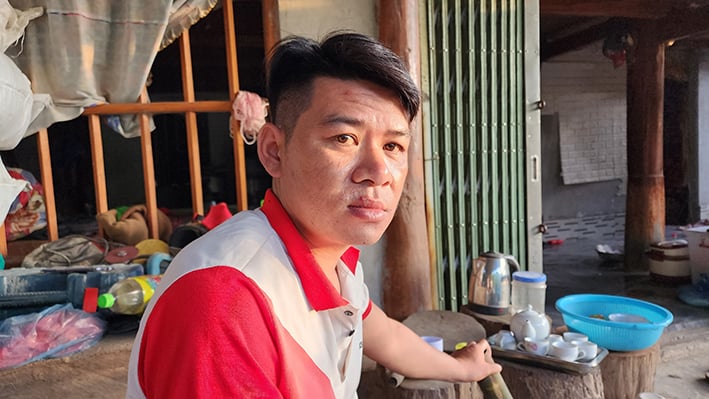
Every day, Mr. Dinh Hai Nam has to take his daughter, who is in 6th grade, to the commune center to study.
Mr. Sang is currently in charge of 8 third and fourth graders at the school in Nhap hamlet. If the children in Nhap hamlet have to cross the lake to "find letters", then for many years, Mr. Sang has also had to cross the lake to "sow knowledge" to the children.
Mr. Sang's journey lasts 2 stages and is regular from Monday to Friday every week. "My house is in the center of Dong Ruong commune. To get to the school in Nhap hamlet, I leave home by motorbike at around 5:30 am.
Traveling about 8km, I arrived at the boat dock in Hum hamlet (also in Dong Ruong commune - PV) and started the next journey of more than 30 minutes by boat to the school in Nhap hamlet where I teach," Mr. Sang shared.
Having worked in the education sector for nearly 30 years and been assigned to teach in remote schools, according to Mr. Sang, it is the innocence of ethnic minority children that motivates him to overcome difficulties to pursue the career of "cultivating people".
Speaking to PNVN Newspaper, the leader of Dong Ruong Commune People's Committee said that Nhap hamlet is one of the most remote hamlets in the commune. The lack of roads connecting to other hamlets affects travel, trade, and especially the education of children.
Understanding these difficulties, the authorities of Da Bac district and Hoa Binh province have started construction of a road connecting the center of Dong Ruong commune to Nhap hamlet. The road is under construction and will soon be put into use to help people travel more conveniently.
Source: https://phunuvietnam.vn/geo-tri-thuc-cho-tre-em-dan-toc-thieu-so-o-xom-oc-dao-20241126155514967.htm


![[Photo] Overcoming all difficulties, speeding up construction progress of Hoa Binh Hydropower Plant Expansion Project](https://vstatic.vietnam.vn/vietnam/resource/IMAGE/2025/4/12/bff04b551e98484c84d74c8faa3526e0)


![[Photo] Closing of the 11th Conference of the 13th Central Committee of the Communist Party of Vietnam](https://vstatic.vietnam.vn/vietnam/resource/IMAGE/2025/4/12/114b57fe6e9b4814a5ddfacf6dfe5b7f)







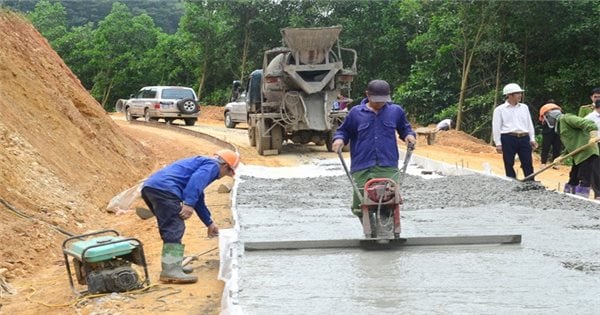


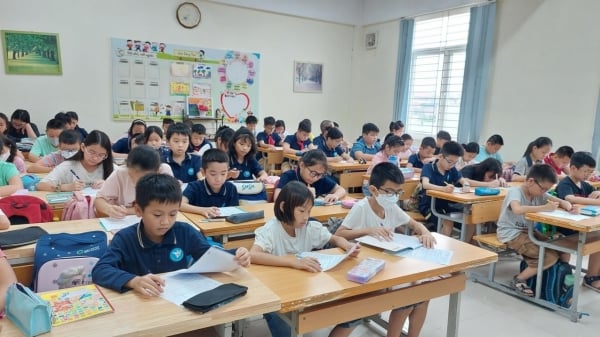








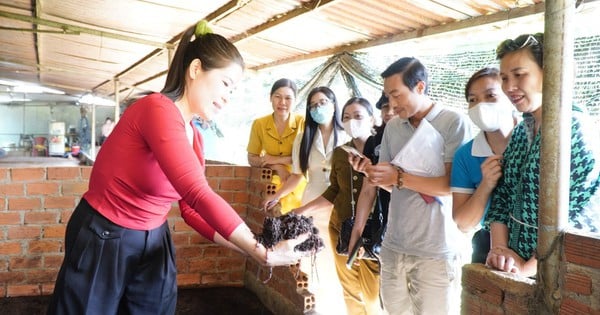





































































Comment (0)